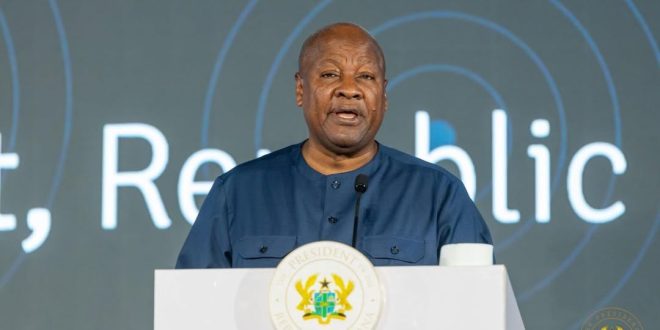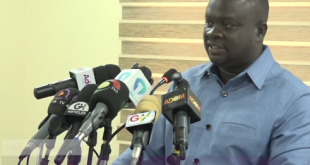Ghana’s President John Dramani Mahama, joined by a powerful coalition of global leaders, has launched the Accra Reset, a bold new framework aimed at overhauling the global development financing system. The initiative was unveiled at a high-level side event during the 80th Session of the United Nations General Assembly in New York.
The Accra Reset proposes a new global development architecture built on three core principles: sovereignty, workability, and shared value — with the health sector as its initial focus and proof of concept.
“Workability Is the Name of the Game Now” — Mahama
President Mahama, who currently serves as the African Union Champion for African Financial Institutions, described the initiative as a necessary and urgent response to a “fraying” global development system. He cited the COVID-19 pandemic’s reversal of two decades of progress, mounting debt burdens, and climate shocks now pushing over 700 million people toward hunger.
“The world is only five years from 2030,” Mahama said. “The question is not simply what new targets should replace the SDGs, but how we design institutions and financing systems that actually work.”
He called for a shift from aspiration to action, highlighting the need for innovative financing instruments, new business models, and smarter coalitions that multiply—rather than ration—resources.
Drawing inspiration from the 2001 Monterrey Consensus, which catalyzed platforms like GAVI and the Global Fund, Mahama urged world leaders to reimagine multilateralism in a way that delivers sustainable value.
From Aid Dependency to Health Sovereignty
The Accra Reset envisions a transition from aid dependency to health sovereignty, with healthcare serving as a launchpad for broader development reform. The framework builds on resolutions from the Africa Health Sovereignty Summit held in Accra in August 2025.
To drive implementation, the initiative introduces two flagship mechanisms:
- The Club of Accra: A coalition piloting financing innovations and establishing “geostrategic dealrooms” to mobilize investment in health, climate, food security, and job creation.
- The Global Presidential Council: A new body of leaders from Africa, Asia, Latin America, and beyond tasked with providing political leadership and accountability.
Additionally, a Global College of Advisors will offer technical guidance, featuring leading minds in health, finance, innovation, and business.
Global Leaders Back the Reset
The Accra Reset launch attracted strong support from global political, institutional, and private sector figures:
- Olusegun Obasanjo, former President of Nigeria and co-convenor of the initiative, called for a new era of solidarity and self-reliance.
- Gordon Brown, former UK Prime Minister, endorsed the framework as “a plan for the future,” emphasizing the need for health sovereignty.
- A message from Kenyan President William Ruto urged accountability from the Global Presidential Council and financing that aligns with national ambitions.
- Prime Minister Mia Mottley of Barbados committed to aligning skills and industrial policy to boost pharmaceutical manufacturing across the Global South.
- Aigboje Aig-Imoukhuede, Chairman of Access Bank, pledged private sector leadership and financing.
- International institutional leaders, including Dr. Tedros Adhanom Ghebreyesus (WHO) and Dr. Ngozi Okonjo-Iweala (WTO), also endorsed the Reset’s call to “rewire” outdated global development norms.
A New Blueprint for a Failing System
With less than half of the 169 Sustainable Development Goals (SDGs) currently on track and the 2030 deadline rapidly approaching, the Accra Reset is being positioned as a blueprint for realigning the global development agenda to address today’s complex and interlinked challenges.
“This is not just about goals,” Mahama emphasized. “It’s about designing systems that deliver results. The Accra Reset is our response to the global call for change.”
 Adoa News Adoa News
Adoa News Adoa News




